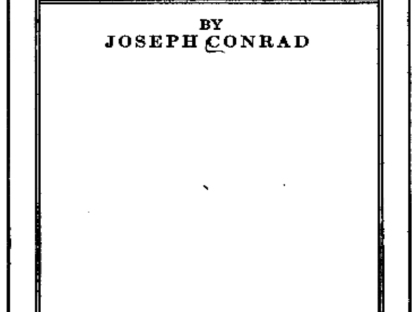
“Statements with identical wording and/or having equivalent content”
The case at issue in the CJEU decision concerns an Austrian MP who was the victim of abusive and defamatory comments on Facebook that damaged her honour. After several judgments by the Austrian judicial authorities, the Austrian Supreme Court referred to the CJEU for a ruling on the conformity with European law of the possibility that “the cease and desist order made against a host provider which operates a social network with a large number of users may also be extended to statements with identical wording and/or having equivalent content of which it is not aware.”
Definitions of identity and equivalence
In order to prevent “any further impairment of the interests involved,” the CJEU has decided that a court of a Member State can order “a host provider
– to remove information which it stores, the content of which is identical to the content of information which was previously declared to be unlawful, or to block access to that information, irrespective of who requested the storage of that information;
– to remove information which it stores, the content of which is equivalent to the content of information which was previously declared to be unlawful, or to block access to that information, provided that the monitoring of and search for the information concerned by such an injunction are limited to information conveying a message the content of which remains essentially unchanged compared with the content which gave rise to the finding of illegality and containing the elements specified in the injunction […].”
While the identical nature of hate content is not specified in the CJEU judgment – the expression “identical content of the information concerned” seems to be self-sufficient –, it is nevertheless indicated that one of the properties of identity is the reproducible nature of the content concerned:
“[…] There is a genuine risk that information which was held to be illegal is subsequently reproduced and shared by another user of that network.”
Equivalence, on the other hand, is specified in two passages of the judgment:
“‘Information with an equivalent meaning’ [refers] to information conveying a message the content of which remains essentially unchanged and therefore diverges very little from the content which gave rise to the finding of illegality.”
“[It is] information, the content of which, whilst essentially conveying the same message, is worded slightly differently, because of the words used or their combination, compared with the information whose content was declared to be illegal.”
Despite these clarifications, as mentioned above, uncertainties have been identified regarding the interpretation of this adjective. An article in the New York Times of 3 October 2019 thus highlighted the fact that criticism of the CJEU judgment “argued that calling for the removal of posts considered ‘equivalent’ added further confusion” (4).
The logical requirement for the adjective “equivalent”
Why does the term “equivalent” give rise to such reservations? Its meaning, “equal in force, amount, or value,” or “amounting to the same thing in worth or significance,” is derived from the Latin aequivalēre: “to have equal power” (5). Statements on which an equivalence judgment is made are not identical, but the value of these statements is considered identical. The following clarification, taken from the Dictionnaire de la langue française Le Robert, highlights the importance of interchangeability or substitutability, which was clearly mentioned by the CJEU with regard to “unchanged” content:
“[The noun ‘equivalent’] refers specifically, in the field of language, to a word or expression that can be substituted for another word or expression without changing the effect produced by the statement.”
The substitutability criterion is both simple and demanding. For illustration purposes, consider the following two statements:
(A) This person is dishonest.
(B) This person has no integrity.
Since the predicates “is dishonest” and “has no integrity” are substitutable (“honesty” and “integrity” are synonyms), statements (A) and (B) can be considered equivalent.
A problematic example
But let us consider the following two statements:
(C) This person has shown dishonesty.
(D) This person is dishonest.
Statements (C) and (D) are neither identical nor equivalent. Indeed, the verbs “to show” and “to be” are not substitutable. More specifically, statements (C) and (D) do not have the same extension. Statement (C) does not preclude the person concerned from being honest, as evidenced by this reformulation:
(C’) There are circumstances in which this person has shown dishonesty.
Statement (D) has a more important extension, in this case universal, than statement (C):
(D’) Whatever the circumstances, this person is dishonest.
Now suppose that statement (C): “This person has shown dishonesty,” has been posted on a social network and found defamatory by a court in the country of the person concerned. And suppose that a user of the same network subsequently posted statement (D): “This person is dishonest,” about the same person. Although (D) is not equivalent to (C), (D) could be considered defamatory by the social network host provider, which, as a result, should remove it. The reason for this position can be expressed by the following principle:
If, by referring to certain circumstances, one statement is considered defamatory, another statement referring to all circumstances would a fortiori be so.
Let us reverse the order of the statements, assuming that statement (D): “This person is dishonest,” was first posted on a social network and was the subject of a court decision requiring its removal. Statement (C): “This person has shown dishonesty,” was subsequently published. The social network host provider could consider that (C) is just as defamatory as (D). It would justify its position by a principle stating that the particular is included in the general:
If, with reference to all possible circumstances, a statement is considered defamatory, so would another statement contained in the first.
The problem with equivalence
In summary, through a fortiori reasoning and inclusion reasoning, the social network host provider could consider equivalent statements that, logically and semantically, are not equivalent. It goes without saying that, in this case, a host would not need to mobilise such reasoning. This comes from the definition of defamation, defined for example in French law by article 29 of the law of 29 July 1881 on freedom of the press, which is summarised as follows on the French website Service-Public:
“Defamation is the allegation or imputation of a fact that damages a person’s honour or consideration. It does not matter whether the fact in question is true or false, but it must be sufficiently precise to be open, without difficulty, to verification and adversarial debate. It must be possible to answer yes or no to the question: “Did the person do it?
[…]
Defamation occurs even if the allegation is made in disguised or doubtful form, or if it is implied. For example, if the author uses the conditional.”
It thus appears that the value of statements (C) and (D) does not directly depend on their logical form. It depends, on the one hand, on the fact that a national court has taken a decision qualifying one of them as “defamatory” and, on the other hand, on the legal definition of defamation (6). But this does not exempt the social network host provider from producing a judgment of equivalence. However, if it does not matter that the hate statements in question are logically equivalent, what about the value of such a judgment? Or, to put it another way, by what other “equivalence” could logical equivalence be replaced? Alain Anquetil (1) See the text of the judgment on the website of the CJEU. (2) See “Facebook can be forced to delete defamatory content worldwide, top EU court rules,” Politico, 3 October 2019. (3) See “Facebook can be forced to remove illegal content worldwide, EU’s top court decisions,” CNBC, 3 October 2019. (4) “Facebook Can Be Forced to Delete Content Worldwide, U.S.’s Top Court Rules,” The New Yok Times, 3 October 2019. (5) Source: Merriam-Webster. (6) Our deliberately abbreviated example does not meet the requirements of part of the French website Service-Public definition, according to which the fact in question “must be sufficiently precise to be the subject, without difficulty, of an audit and a contradictory debate.” However, this in no way alters our argument. [cite]




